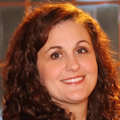5 things that I learned when I transitioned out of the operatory
As I approached my 15th year as a practicing RDH, I was happy with my career choice. I did wonder about other paths that I could pursue within dentistry. I wanted to find ways to share what I had learned and enjoyed with a larger audience, in a way other than direct patient care. I also thought about the future. Having had a recent diagnosis of hand and wrist issues, I knew my body was not going to hold up for many more years working exclusively in practice.
I started to think, “What other opportunities are available for hygienists who want something other than traditional hygiene, and how do we get there?” Migrating toward full-time work outside of the traditional operatory setting took time, work, a willingness to try (and sometimes fail), and a lot of patience. Through that process, I learned so many things. These are my top five.
1. Be purposeful
Take the time to get clear on what you want (and don’t want) in your next chapter. A risk that career changers take is jumping from one thing to another without finding satisfaction. The old “something has to be better than where I am now” mentality is drenched in negativity and short sightedness. It can involve starting over and over again. This can be frustrating, limiting, and financially crippling. It could also lend potential employers to question your focus and commitment to stick with something for the long term.
For me, I took time to explore what I wanted more of in my career. I thought about what I was passionate about, the type of work I enjoyed doing, and where I already had transferrable skills or training. I considered where I might want to pursue additional knowledge and schooling. I also had to think about what mattered the most to me. Was I looking for flexibility or a 9-5 job? Was it more important to earn at a certain level, or to enjoy the work? Did I want to work for someone else or try to strike own on my own?
Capitalize on your talents, knowledge, what you enjoy, and what is important to you. A question to help you get clarity in this area might be, “If failure were not an option or finances were not an issue, what would I do?”
This is where you have to get real about your belief system, in particular, self-limiting beliefs. Have you ever thought, “There’s nowhere to go from clinical” or “When I have enough money . . . ” or “I hope someday I can do what I’m passionate about”? If you tell yourself that what you want is not possible, it absolutely will never happen. I can guarantee that if you change nothing, nothing will change.
Another trap to avoid is waiting for the recipe for the “secret sauce,” if you will. Everyone’s path is unique. It is rarely as simple as “I saw this out of the op job, I applied for it, and I love it!” You can surely listen and learn from other’s stories and experiences, but it’s unlikely that you will follow the exact path. I often say that my career path has not been anything even close to a straight line. Some decisions were purposeful and well thought out and other changes were quite by chance, but each opportunity and experience prepared me for the next step—even when I wasn’t yet sure what the next step would be!
Consider what you want, and then set reasonable goals with specific action steps and timelines. Your plan may not have to move at light speed if that is not what you are comfortable with, but it has to move. Fuel your passion and don’t wait for someone to light the match for you.
2. Invest in yourself
I understand resources are limited. In fact, when I was starting to consider life after practice, it was a particularly difficult time financially. I had a hand injury that left me working less, earning less, and spending more on copayments for doctor visits.
I learned that getting clear and paving a path requires additional resources. Some things do not cost anything. There are great on-line resources, communities, videos, informational interviews, and library books—all are free. Time is not free per se, but needs to be allocated in order to achieve a goal. There are also investments that are financial. I made changes to my budget and found places I was willing to cut spending, so that I could have the funds I needed to pursue my interests. I also picked up extra work by temping when I could for extra money.
I invested in two separate certifications that I felt would help open up more opportunity in specific areas of interest to me. I also invested in a career coach. Working through options and obstacles (both real and perceived) with a person who can view things objectively can help you push past fears and old beliefs that no longer serve you. There is also an incredible amount of accountability that comes from having a coach. Where I once would procrastinate, the knowledge that I had a meeting coming up with her would force me to take action—even in areas that I found to be scary.
3. Get out of your comfort zone
In that last section, I talked about fear. That is sometimes a very real passenger on your journey to growth. In order to get where you want to go, you sometimes have to do things that force you to get uncomfortable. The path is not always a paved one (in fact, sometimes you may feel you have to slice your way through the brush), but there is satisfaction, learning and growth in doing what you once thought you couldn’t.
There is also a certain amount of risk involved any time you work toward change. Without taking calculated risks, trying new things, and accepting challenges you will likely feel stuck or limited in where you can go.
Over the course of the last few years I did things that pushed me way out of my comfort zone. I’d love to tell you that all of them were amazing successes, but that would not be true. What I can tell you is that every time I tried, I learned something else, got another idea, and “kept swimming.”
4. Networking
This may be one of the single best things I learned. It netted the greatest rewards and led me to meet some incredible people doing amazing things. I have found trusted mentors and teachers, like-minded colleagues, loyal supporters, and wonderful friends.
Don’t be afraid to get involved. Participate in associations, attend local or national meetings, network in online groups, find mentors and leaders in areas that interest you, etc. Every time you put yourself out there, you will connect with more people. This can greatly impact the opportunities that present themselves to you.
I got the experience I was looking for in dental consulting by reaching out to a consultant in my local area. My initial goal was to have an informational interview to learn more about her career path. Much to my surprise, we instantly connected to the point that she called me soon after to see if I was interested in speaking at a study club. Eventually she hired me as a hygiene consultant for her firm, where I also learned so much about the practice management side of dentistry. She helped to get some of my training materials to larger groups, which opened up additional speaking opportunities for me. My participation in online dental forums has provided other avenues for me, including the opportunity to pursue my passion for writing. Connecting with my state’s hygiene association allowed me to pursue more work that was of interest to me. Doing a volunteer assignment connected me to the person who hired me for my current role, which is what I call “my dream job.”
This last paragraph isn’t to “toot my own horn”. The point is to show that you never know whom you will meet and what you will learn until you put yourself out there with focus, curiosity, a positive attitude, and an open mind. Opportunities that aren’t listed as job openings are all around you.
5. Say “yes” to more opportunities
Another investment I made was in the way of taking advantage of opportunities that didn’t necessarily come with a financial payoff, but with the benefits of experience, exposure and practice in areas that interested me.
I got more involved in my private practice job, learning more about the business side of dentistry. I took any opportunity I had to shadow someone or talk to someone who was doing something interesting. As much as I needed to earn a living, I didn’t let the time to money ratio stop me. I spent countless hours designing presentations and writing pieces that I either delivered on a volunteer basis or for a small honorarium that didn’t come close to the number of hours I put in. I considered it sweat equity and it paid off in spades. My training period in consulting resulted in a temporary dip in income. looked at it as tuition, and the exposure and learning that I gained was far worth the temporary decrease in monetary compensation.
Conclusion
These are just five of so many things I’ve learned along the way. As the past few years have evolved, I learned something else. People who make the transition from traditional practice don’t just seamlessly moonwalk out to a career filled with 24/7 amazingness. It’s important to recognize that every career comes with its challenges. For example, I no longer have a workday that ends at 5:00. I often have to do work at home in the evening or on the weekend. Nothing in life comes without some sort of give and take or tradeoff. When we recognize that up front and understand and accept the challenges of the paths we choose, it’s a lot easier to be satisfied in our careers. I think another piece of career happiness comes when you express gratitude for where you are now (it was once a place you wished and worked hard for), enjoy the journey, and keep moving toward new destinations and greater goals.
About the Author

Julie Whiteley, BS, RDH
Julie Whiteley, BS, RDH, is certified in human resources. She holds degrees in business administration and dental hygiene and has worked extensively in both fields. She is on the faculty of Massachusetts College of Pharmacy and Health Sciences University in Boston. Julie bridges her knowledge and experience from business, clinical hygiene, and teaching to deliver information and programs that enhance dental practices. Contact her at [email protected].
